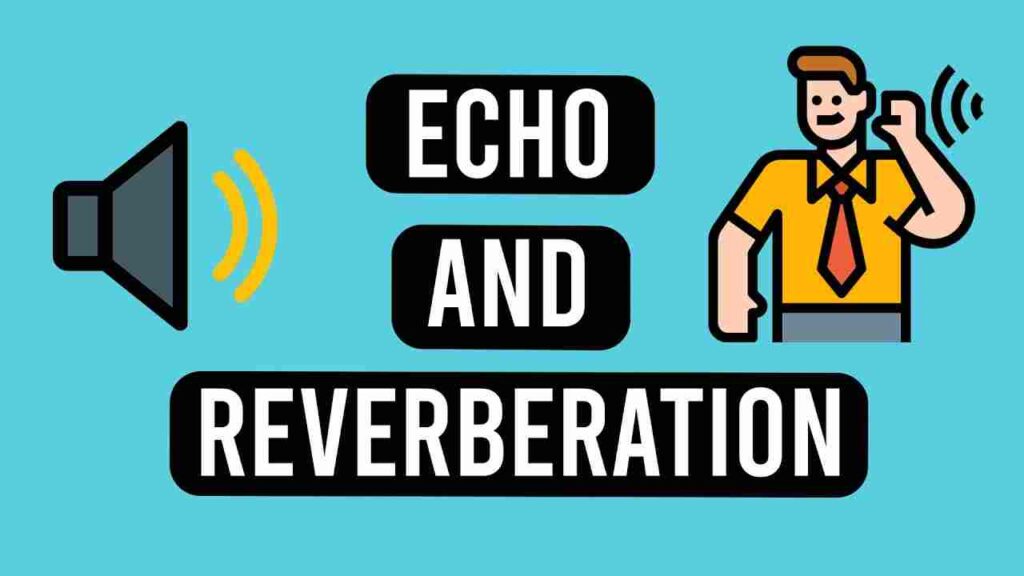
Explore 15 Key Difference between echo and reverberation
Echo and reverberation are two common acoustic phenomena that occur in various environments. While they both involve the reflection of sound waves, there are several differences between the two. Here are 15 differences between echo and reverberation, explained in simple terms that will help you to understand in simpler way for your upcoming exams:
15 Difference between echo and reverberation
Origin: While reverberation is a continuous and complex reflection of sound that happens when multiple reflections blend together, an echo is a discrete repetition of sound caused by a single reflection off a surface.
Timing: While reverberation is a rapid succession of numerous reflections that happen almost simultaneously with the original sound, an echo occurs after a discernible time interval from the original sound.
Intensity: Echoes are frequently perceived as distinct, independent repetitions that are less intense than the original sound. On the other hand, reverberation causes the sound to decay slowly and adds richness and depth without clearly repeating itself.
Reverberation can last for a longer time, gradually fading away over time, whereas echoes are typically shorter in duration.
Reflections: While reverberation involves multiple reflections that bounce off different surfaces in an enclosed space, echos only involve a single reflection.
Sound perception: Reverberation produces an atmosphere of space, envelopment, and ambience while echos are perceived as distinct repetitions of the original sound.
Clarity: Because they overlap with the original sound, echoes can occasionally make speech difficult to understand and unclear. Although it can slightly lessen clarity, reverberation generally adds to the pleasing and natural quality of sound.
Environment: Hard surfaces found outdoors, such as mountains or canyons, are where echoes are frequently heard. In enclosed areas like concert halls, churches, or rooms with reflective surfaces, reverberation occurs.
Number of reflections: Reverberation is made up of many reflections that interact and blend together, as opposed to echoes, which only involve one or a few reflections.
Reverberation is a complex acoustic phenomenon that is influenced by room size, shape, and materials while echoes are relatively simple in nature.
Reflection period: When compared to reverberation, echoes have a longer period of reflection. This is because echoes have a unique reflection path that causes them to travel further before they reach the listener.
Delay: There is a definite lag between the original sound and the reflected sound that reaches the listener’s ears when there is an echo. Reverberation, on the other hand, happens almost immediately after the original sound.
If echos aren’t properly controlled, they can result in unwanted feedback in audio systems. When carefully managed, reverberation improves the overall audio experience without impairing feedback.
Applications in music: Reverberation is a key element in creating a natural and immersive acoustic environment for musical performances, while echos are frequently used as a deliberate effect in music production.
Reverberation improves the perception of the surrounding space by giving a sense of depth, size, and acoustic character. Echoes can give a sense of distance between the sound source and the listener.
Echoes are distinct repetitions of sound with a noticeable time gap, whereas reverberation is a continuous and complex reflection that adds richness and depth to sound. Echoes are shorter in duration, involve fewer reflections, and disrupt speech clarity, while reverberation lasts longer, encompasses numerous reflections, and contributes to a pleasing and natural sound environment.
Also Read: Explore 15 Key Difference between Delegation and Decentralization